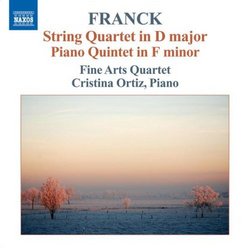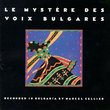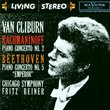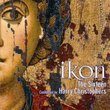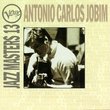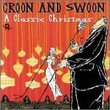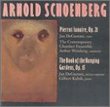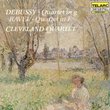| All Artists: Fine Arts Quartet, Cristina Ortiz Title: Franck: String Quartet; Piano Quintet Members Wishing: 0 Total Copies: 0 Label: Naxos Original Release Date: 1/1/2009 Re-Release Date: 11/17/2009 Genre: Classical Styles: Chamber Music, Historical Periods, Classical (c.1770-1830) Number of Discs: 1 SwapaCD Credits: 1 UPCs: 747313200979, 747313200979 |
Search - Fine Arts Quartet, Cristina Ortiz :: Franck: String Quartet; Piano Quintet
CD DetailsSimilarly Requested CDs
|
CD ReviewsGrandly Romantic Readings of Franck's Quintet and Quartet Robin Friedman | Washington, D.C. United States | 01/27/2010 (5 out of 5 stars) "Cesear Franck (1822-1890) enjoyed a long career as an organist and composer, but he is best remembered for a series of masterworks composed during the last decade of his life. With his life of quiet, continuous effort culminating in romanticism, Franck is an inspiring figure. Franck's great decade of composition began and ended with works of chamber music. The Piano Quintet in f minor dates from 1880 while the String Quartet in D major was composed in 1890 just before Franck's death. Both the Quintet and the Quartet receive impassioned performances on this new Naxos CD with the Fine Arts Quartet and pianist Christina Ortiz.
I am familiar with other recordings of these works. The Quator Ludwig together with pianist Michael Levinas has an outstanding recording of the Quintet on Naxos. César Franck: Piano Quintet; Ernest Chausson: String Quartet And the Juilliard String Quartet has made a classic recording of the unfortunately too-little-known Quartet.String Quartets By Franck And Smetana With these and other fine recordings, this CD has a sweeping unabashedly passionate character that sets it apart. This is romantic music played with conviction, emotion, and contrast in long searing vibrato-filled phrases. The music drew me in at the outset and never let go. The Quintet on any reading is a work of highly-charged emotion. Many listeners and writers of program notes find the music erotically charged. Camille Saint-Saens who first performed the virtuosic piano part vehemently disapproved of this work which Franck had dedicated to him. The quartet and Ortiz play with unrestrained feeling. The opening movement, "molto moderato quasi lento" opens with a wail in the strings which is contrasted with a slow, singing piano line. The lengthy movement full of contrasts in moods works in this performance to a fierce and sustained rhythmic climax for both quartet and piano. The second movement,"Lento, con molto sentimento" begins with a sad, prayerful theme which gradually develops into a song of great peace. The finale, "Allegro non troppo ma con fuoco" consists of music of great intensity which features the return of themes from the opening movement. This is a late romantic, deeply chromatic score. Many of Franck's works are described as "cyclic" in form because each movement shares similar thematic material. In listening, I find it useful not to worry too much about the form but to focus instead on the surging character of the music. This reading by the Fine Arts Quartet and Ortiz compels the listener to hear the passion without the potential distraction of the form. While the Quintet is music of passion from beginning to end, Franck's late String Quartet in D major sometimes is given a cerebral, intellectual reading. Among other music, Franck's quartet shows the influence of Beethoven's late quartets. The Quartet is lengthy, difficult and, in some performances austure. It takes several hearings and careful listening to appreciate. But there is little of the austure in this performance. Here again, we are treated to a Franck who wears his heart on his sleeve. The emotions expressed in this music are varied, and Franck again uses interrelated themes in his four movements to unify the composition. The opening movement begins with a lengthy, tragic lento followed by a sonata section with themes of contrasting character and a fugual development. The second movement is a Mendelssohn- like scherzo with lively and swirling outer sections surrounding a melancholy trio. The third movement, with its singing and varied theme is the emotional center of the quartet. The work concludes with a varied Allegro molto finale which recapitulates the themes of the initial three movements before moving to a well-prepared triumphal close. I received my first exposure to live chamber music in concerts of the Beethoven quartets that the Fine Arts Quartet performed in Milwaukee many years ago. The ensemble has been in continuous existence since 1946, but, of course, none of the current members of the group, Ralph Evans, Efim Boico, Yuri Gandelsman and Wolfgang Laufer were in the ensemble I knew. I still am pleased to know the ensemble still performs. With this beautiful recording, the Fine Arts Quartet and Ortiz show intimate music-making at its best. Robin Friedman" |

